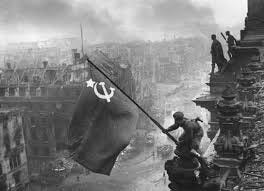It’s astonishing that not a single politician in the country is insisting on something I find fairly obvious: the Catalan language can’t afford to be left out of the continent’s rearmament. In fact, I’m not sure Europe—or even Spain—can afford it either. The European Union faces a growing security problem in its southern flank, a problem made worse by the fact that Catalans still live, existentially speaking, with the knife tied to the table, as they did after 1714, when Philip V dismantled the Crown of Aragon and its citizens were stripped of their weapons.
While Morocco sharpens both its military and its nationalism, Spain has disarmed itself demographically and spiritually, in order to paper over the reality that Catalans remain second-class citizens. Eighty years ago, a Castilian had more in common—culturally and economically—with a Moroccan than with a Catalan. Today, Castilians and Catalans are more alike than ever. But this only leaves Spain dangerously exposed to the growing power of North Africa.
Like France, Spain has gradually worn down the values that once made it impregnable, simply to avoid facing the question of its internal diversity. Europe may have traded Christianity for democracy, but in the southern part of the continent, democratic values have served more as a wrecking ball for history and tradition than a foundation to strengthen them. All the weaknesses that threaten Europe reach their deepest point in its south.
Algeria and Morocco are at each other’s throats, locked in an arms race fed by both Russia and the United States. But the Cold War is now receding, and Washington and Moscow are likely to draw closer together as they move to contain China. Just as France and Britain allied against Germany in two wars—after centuries of bloodshed between them—Russians and Americans may find themselves united in the end to hold the Chinese at bay.
The Poles—often likened to the Catalans during Hitler’s era—have built the most formidable army in Europe, fearing they might be sold out once again. But Spain is not Poland. It has weakened its Christian core and never achieved linguistic unity—not even under Franco, nor under the generals of the nineteenth century. More importantly, the true civilizational frontier of the European Union is not in the north, but in the south however the traumas of the last century, and the propaganda that clings to them, may obscure it.
Spain ought to embrace its internal diversity and strengthen it. Castile cannot hold off North Africa on its own. Its interior has been hollowed out to feed Madrid and dilute the Catalan Countries with its own population; the demographic tables on Wikipedia are enough to confirm this. Spain could become a true geopolitical unit if the Spanish deep state—and Barcelona’s grown-up leaders—were to realise that the Catalan independence movement, setting aside the lies, cheap propaganda, and folklorism of the past twenty years, was a step in that direction. Such a geopolitical union, in fact, could even serve as a template for the future of the European Union.
Impoverishing Catalonia, with all the weight of history that it carries, will prevent Spain from becoming the mid-sized power it could be—capable of defending itself and safeguarding the EU’s Mediterranean flank. For now, the north of the continent may find this amusing, as it always has looked down on Catholic nations, but in time, European unity won’t be able to afford it. Without a strong frontier facing the Muslim world, Europe will end up sold and carved up between the Russians and the Americans—who already have their hands full with China.
Instead of hurling insults at Trump, Spanish newspapers might do well to understand that Aznar is no different from Bush or Obama. His Madrid-centred project belongs to yesterday’s world, just like Zapatero, who now lobbies for China. As for Catalonia, President Illa should be more concerned about Morocco’s fighter jet purchases than about Sílvia Orriols’ speeches. Puigdemont’s exile is misleading: it’s become a pathetic circus in which everyone—Brussels included—is taking part. But we should be asking ourselves why the discourse of Aliança Catalana came out of Ripoll, and not from Covadonga.
Catalonia has always been the Achilles’ heel of the Spanish state—and it will be of Europe too, if the continent tries to rearm while trampling the Catalans. Language separates men from beasts, and that’s why it is an irreplaceable lever for any army intending to defend a territory. If the Catalan language doesn’t play some role in Europe’s defence, it will wither away—there is no question about that. But the void it leaves won’t be merely cultural or folkloric. It will become a strategic threat to the entire continent. Even the French ought to see that.



